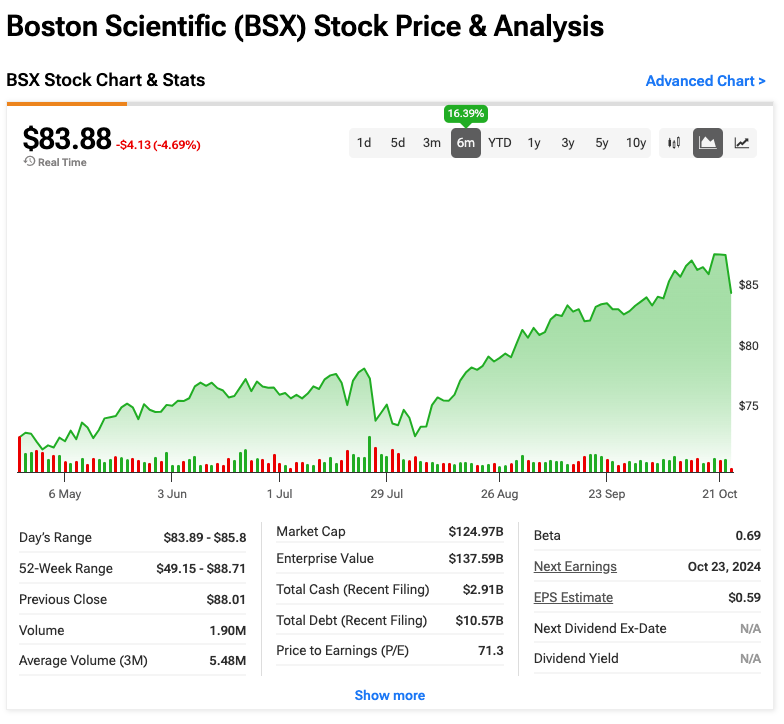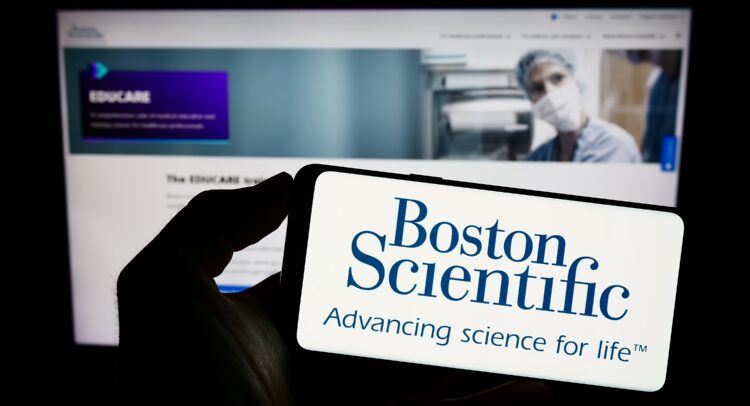As Boston Scientific’s (BSX) Q3 earnings report showed yesterday, the company demonstrated significant sales growth across multiple areas. Compared to Q3 2023, net sales have risen considerably on a reported, organic, and operational basis. The report highlighted net sales growth in both its MedSurg and Cardiovascular segments, with increases of 10% and 25%, respectively.
What’s Happening with Boston Scientific Stock?
Despite the overall positive Q3 earnings report, Boston Scientific stock is struggling today. It rose in pre-market trading but has since failed to sustain momentum, down 5% as of this writing. However, it has shown mostly steady growth over the past six months, rising 16% despite consistent market volatility.

Not all of the company’s Q3 statistics were positive. Reported GAAP net income was $0.32 per share, slightly below Boston Scientific’s guidance range of $0.36 to $0.38. However, it also reported adjusted earnings per share (EPS) of $0.63, slightly above the guidance range of $0.57 to $0.59.
Overall, today’s poor performance is likely due to negative market momentum. Boston Scientific’s Q3 report was positive overall, driven by $4.209 billion in net sales, marking a 19% increase year-over-year on both a reported and operational basis, and an 18% organic increase.
Additionally, Boston Scientific reported both reported and operational net sales growth across international markets, including Europe, the Middle East, Africa (15%), Latin America, Canada (9%), and emerging markets (15%).
Is Boston Scientific Stock a Strong Buy?
Wall Street sentiment toward Boston Scientific has been bullish lately. Analysts have a Strong Buy consensus rating on BSX stock based on 17 Buys, two Holds, and zero Sells assigned in the past three months, as indicated by the graphic below. After a 67% rally over the past year, the average BSX price target of $92.78 per share represents a 9.92% change from the last price of $84.41.

Yesterday, Bank of America (BAC) analyst Travis Steed increased his BSX stock price target from $90 to $100, maintaining a Buy rating, implying upside potential of 18%. On the same day, Matthew Taylor of Jefferies (JEF) also maintained a Buy rating for BSX, although he kept his price target at $90 per share, which implies 6% upside potential.
















